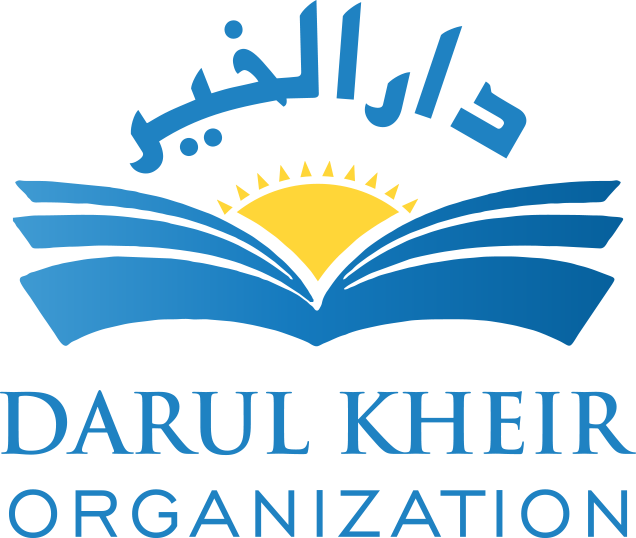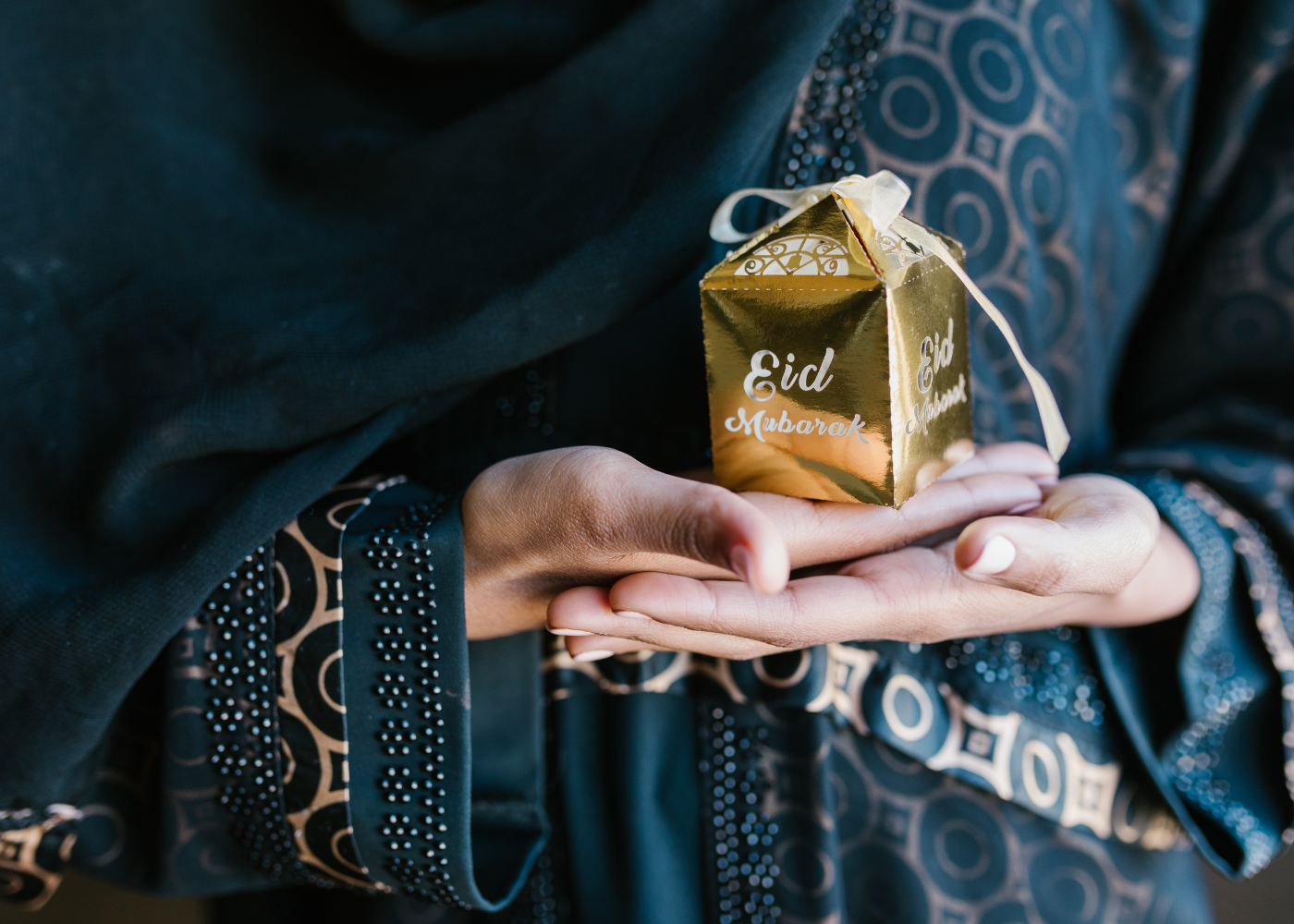In this article, you'll learn how Darul Kheir Eid Celebrations empower the less privileged, especially in Mukuru Slums and its environment. On that note, Eid is a time of joy, gratitude, and generosity. It is a time to celebrate Allah's blessings, share happiness with family and friends, and extend a helping hand to those in need, especially the less privileged residents of Mukuru slums.
However, Eid can also be a time of hardship, loneliness, and despair. Many struggle to make ends meet, provide for their families, and cope with the challenges of living in poverty. Many of them feel excluded from the festive spirit, unable to afford Eid's necessities, let alone the luxuries. This is where Darul Kheir steps in. In the vibrant tapestry of Mukuru slums, Darul Kheir stands as a beacon of compassion and unity.
The organization provides comprehensive community-based programs for children, youth, women, and families. It has also launched a unique initiative that transcends socio-economic boundaries – the Eid Celebrations for the Less Privileged Program. The Eid Celebrations for the Less Privileged Program is a festive initiative that aims to spread joy and hope among the community's less fortunate members. The program involves distributing food, clothes, gifts, and cash to the needy and organizing communal prayers, meals, and entertainment.
The program also fosters a sense of belonging and solidarity among the community and a spirit of gratitude and generosity. This article unravels the layers of this festive initiative, exploring the significance of Eid, the unique program it entails, success stories that illuminate its impact, the indispensable role of the community, and the promising plans that promise to enrich this joyful tradition further.
Why Darul Kheir Eid Celebrations Are So Significant
Eid is one of the most important festivals in the Islamic calendar, commemorating the completion of Ramadan – a month of fasting, reflection, and spiritual growth. Eid, which means "festival" or "feast" in Arabic, is celebrated twice a year: Eid al-Fitr, which marks the end of Ramadan, and Eid al-Adha, which honors the sacrifice of Prophet Ibrahim. Beyond religious significance, Eid is also a cultural and communal celebration, a time for joy, compassion, and unity. Eid is a time to express gratitude to Allah, to celebrate the achievements of Ramadan, and to share the blessings with others. Eid is also a time to strengthen the bonds of family, friendship, and community, and to extend a helping hand to those in need. The Darul Kheir Eid Celebrations circle the societal, cultural, and communal aspects. Eid is celebrated in different ways worldwide, reflecting the diversity and richness of the Islamic culture. However, some common elements and traditions can be observed.Including:
- Praying: Eid begins with a special congregational prayer, usually held in a mosque or an open space. The prayer is followed by a sermon, in which the imam (leader) reminds the worshippers of the lessons and virtues of Ramadan and Eid.
- Greeting: Eid is a time to exchange greetings and wishes with family, friends, and neighbors. The common greeting is "Eid Mubarak", which means "blessed Eid" or "happy Eid". Some people also hug and kiss each other, as a sign of affection and brotherhood.
- Dressing: Eid is a time to dress in new or clean clothes, as a symbol of purity and joy. Some people also wear traditional or ethnic attire, reflecting their cultural heritage and identity.
- Eating: Eid is a time to enjoy delicious food and drinks, especially after a month of fasting. Some of the common dishes include dates, sweets, meat, rice, and bread. Some people also prepare special dishes that are unique to their region or country.
- Giving: Eid is a time to give charity and gifts to the poor, the needy, and the relatives. This is a way of expressing gratitude to Allah, sharing the happiness with others, and fulfilling the social obligations of Islam. Giving charity and gifts is also a way of purifying one's wealth and soul, as well as fostering a sense of generosity and compassion.
- Visiting: Eid is a time to visit family, friends, and neighbors, and to socialize and have fun. Some people also visit the graves of their deceased loved ones, and pray for their souls. Visiting is a way of strengthening the bonds of kinship and friendship, as well as honoring the memory of the departed.
- Entertaining: Eid is a time to entertain oneself and others, and to enjoy various forms of recreation and amusement. Some people play games, watch movies, listen to music, or go to amusement parks. Some people also organize or attend cultural events, such as concerts, exhibitions, or festivals. Entertaining is a way of celebrating the joy of life, as well as appreciating the beauty and diversity of the Islamic culture.
The Role Of Eid Celebrations In Bringing People Together
Eid is pivotal in bringing people together, irrespective of their socio-economic backgrounds. Eid transcends race, ethnicity, language, and nationality barriers and creates a sense of belonging and solidarity among Muslims. Eid also bridges the gap between the rich and the poor, the privileged and the marginalized, and the powerful and the oppressed, and creates a sense of equality and justice among the people. At the same time, Eid fosters a spirit of tolerance and respect among Muslims and non-Muslims, creating a sense of harmony and peace among the people. As such, Eid is a festival of joy, compassion, and unity that holds profound importance in the Islamic tradition. It is a time to celebrate Allah's blessings, share happiness with others, and strengthen community bonds. Equally important, Eid is also a time to appreciate Islam's cultural and communal aspects and to embrace the diversity and richness of the Islamic culture. Eid is a time to be grateful, generous, and joyful and to spread the message of peace and love to the world.Understanding Darul Kheir Eid Celebrations Community Outreach Program
The Eid Celebrations for the Less Privileged Program is a testament to Darul Kheir's commitment to inclusivity and shared joy. This section peels back the layers of the program, revealing its goals and methods. From vibrant cultural performances to traditional music echoing through the slums, from delicious food tantalizing taste buds to exciting games that know no age limit – the program is a kaleidoscope of festivities tailored for all. The Darul Eid Cup Football Tournament takes center stage, not merely as a competition but as a celebration of local talent and a platform for community engagement. But beyond the glittering festivities, the program has a deeper purpose – to ensure that the less privileged are not mere spectators but active participants in the joy of Eid. It seeks to bridge socio-economic gaps, inspire as well as educate the future generation, creating an atmosphere where every resident of Mukuru feels seen, valued, and celebrated during this auspicious occasion.The Vital Role Of The Darul Kheir Eid Celebrations To The Community
Darul Kheir's Eid Celebrations Program is not a solo performance; it's a collective symphony orchestrated by the Mukuru community. The program, which aims to spread joy and hope among the less privileged members of the community, relies on the active participation and support of the community members. This section delves into their vital role in supporting and amplifying the program's impact.Volunteering for Event Logistics
One of the ways the community supports the program is by volunteering for event logistics. The community members offer their time, skills, and resources to help plan, coordinate, and execution of the program. They assist with tasks such as:- Securing venues and permits for the events
- Transporting and distributing food, clothes, gifts, and cash to the beneficiaries
- Setting up and cleaning up the event sites
- Providing security and crowd control
- Managing registration and attendance
- Facilitating communication and feedback
Contributing Culturally Rich Performances
Another way the community supports the program is by contributing culturally rich performances. The community members showcase their talents and creativity by performing various forms of art and entertainment, such as:- Music and songs
- Poetry and spoken word
- Dance and drama
- Comedy and storytelling
- Games and competitions

